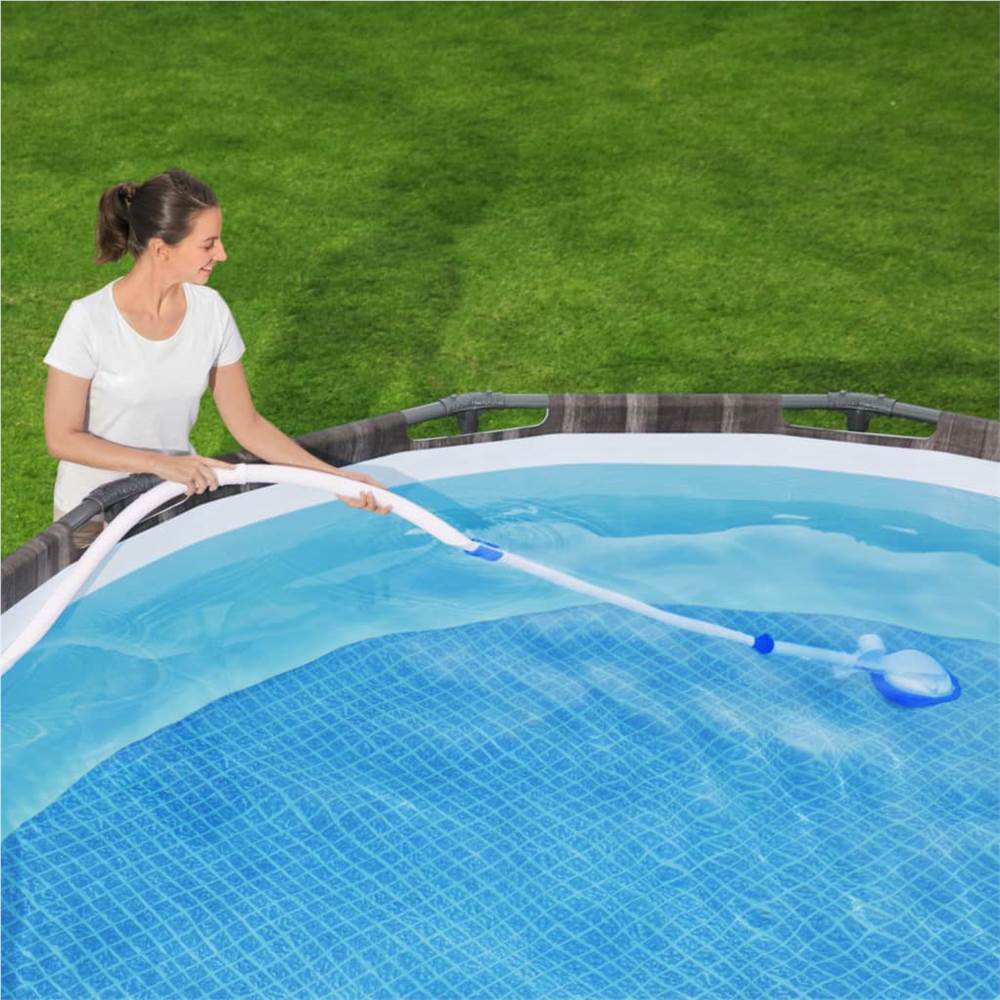Maintaining the cleanliness and clarity of your pool water is essential for both aesthetic and health reasons. Among the most common contaminants that can affect pool water quality are oils and sunscreen residue. These substances often accumulate in the water due to regular swimming activities, creating unsightly films and affecting water chemistry. Effectively removing oil from your pool requires a comprehensive approach, blending practical methods with regular maintenance practices. This article provides essential tips for tackling these issues and ensuring your pool stays clean and inviting all season long.
Understanding Oil Contamination in Pools
Before diving into the various methods for removing oil, it’s important to understand why it’s a problem. The oils and lotions that accumulate in pool water primarily come from sunscreen, tanning oils, and even body lotions that swimmers wear for protection and hydration. These substances don’t mix well with water and tend to float on the surface, creating a greasy film. This buildup can not only make the water appear cloudy and dirty but also disrupt water chemistry, leading to more serious maintenance challenges over time.
Oil in pool water can clog filters, interfere with the pool’s sanitizing processes, and create an ideal breeding ground for bacteria. The accumulation of oil can also lead to an unpleasant swimming experience, as it can form slicks on the pool’s surface that are hard to ignore. The good news is that, with the right strategies and consistent care, removing oil from pool water is entirely manageable.
Enzymatic Pool Cleaners: A Natural Solution
One of the most effective and eco-friendly ways of removing oil from your pool water is by using enzymatic pool cleaners. These products contain natural enzymes that break down oils, lotions, and other organic matter in the water. Enzymes act like catalysts that help speed up the natural degradation process of oils, making them easier to filter out. These cleaners are safe to use in all types of pools and are particularly useful in breaking down stubborn oil films that accumulate on the water’s surface.
Adding an enzyme cleaner to your regular pool maintenance routine can greatly reduce the amount of oil floating in the water. Most products are simple to use and can be added directly to the pool water, where they work continuously to digest the oils. Enzymes are especially beneficial in high-use pools where sunscreen and body oils are deposited regularly. Their ability to break down contaminants naturally helps maintain a healthier and cleaner pool environment without the need for excessive chemical use.
Optimizing Water Circulation for Better Oil Removal
Proper water circulation is crucial when dealing with oil contamination. Stagnant water allows oils and other contaminants to accumulate more easily on the surface, creating a film that is difficult to remove. Ensuring your pool’s circulation system is running effectively will help distribute the oils more evenly and aid in their removal through the filtration system.
By optimizing the direction and power of your pool’s return jets, you can create a water flow that pushes oils toward the skimmer or filter system. Additionally, running your pool pump for longer periods, especially during times of heavy use, will increase the chances of capturing oils before they have a chance to settle. Regularly checking the condition of your pump and filters is also crucial to ensure that your pool’s circulation is functioning at its best, allowing for faster and more effective oil removal.
Another helpful technique for removing oil from pool water is the use of absorbent sponges designed specifically for oil cleanup. These sponges can be placed in the skimmer basket or allowed to float freely in the pool. They work by absorbing oils and lotions, reducing the amount that reaches the filtration system.
Maintaining Water Chemistry to Minimize Oil Buildup
Proper water chemistry is essential for keeping your pool clean and reducing the accumulation of oil and other contaminants. When water chemistry is balanced, it becomes easier for your pool’s sanitizers to work effectively, breaking down oils and keeping the water clear. Regularly testing and adjusting the chemical levels in your pool will not only help in removing oil but also maintain a safe swimming environment for your family and guests.
However, it’s important to avoid over-chlorination, which can cause skin irritation and affect the longevity of your pool equipment. Balancing pH levels and alkalinity is equally important, as improper levels can create an environment where oils accumulate more quickly. If necessary, seek the guidance of professionals to ensure that your pool water chemistry is optimal for preventing and removing oil buildup.
If you find that oil and other debris are overwhelming your pool’s natural cleaning processes, consider hiring a professional service. Companies like Swimming Pool Cleaning Service Victorville provide specialized cleaning techniques, ensuring your pool remains free of oil and other contaminants. A professional service can help assess your pool’s unique needs and offer solutions that may go beyond routine maintenance.
Prevention Reduces Pool Oil
Prevention is one of the most effective strategies in removing oil from your pool. Reducing the amount of oil and sunscreen that enters the water in the first place can make a significant difference in the overall maintenance of your pool. Encouraging swimmers to rinse off before entering the pool is one of the simplest ways to minimize the amount of oil and lotion introduced to the water. Many pool owners install outdoor showers near their pool area, providing a convenient place for guests to rinse off sunscreen, tanning oils, and body lotions before swimming.
Additionally, offering swimmers oil-free sunscreen alternatives can reduce the overall oil load in your pool. Many brands now offer sunscreens that are water-resistant and less likely to wash off into the water. While these products still provide sun protection, they leave behind fewer residues, helping keep your pool cleaner for longer.
Shock Treatments for Oil
While enzymatic cleaners and proper water circulation can go a long way in removing oil from your pool, sometimes a more powerful approach is needed. Shock treatments are an excellent way to tackle persistent oil buildup. These treatments involve adding a large dose of chlorine or other pool sanitizers to the water to break down organic matter, including oils. Shock treatments are most effective when used periodically and in combination with other cleaning methods, as overuse can lead to chemical imbalances in your pool water.
When performing a shock treatment, be sure to follow the manufacturer’s instructions carefully and allow sufficient time for the chemicals to work before allowing swimmers back into the pool. Shocking the pool at night or during a period of non-use is recommended, as this gives the chemicals time to fully circulate and remove oil without interference. Following a shock treatment, it’s important to test and adjust the pool’s chemical levels to ensure they return to the proper balance.
Cleaning the Pool Deck and Surroundings
Finally, keeping the pool deck and surrounding areas clean can also play a role in removing oil from the pool water. By regularly cleaning and wiping down chairs, lounges, and other poolside furniture, you can reduce the chances of oils making their way into the water.
Using a mild detergent to clean outdoor furniture and pool deck areas will help eliminate oils that might otherwise transfer into the pool. Additionally, providing clean, dry towels for swimmers can minimize the risk of reintroducing oils into the water. Regular maintenance of the pool’s surrounding environment goes hand in hand with the efforts inside the pool to keep oil levels under control.
Effective Oil Removal Techniques
Removing oil from your pool water requires a combination of regular maintenance, preventive strategies, and targeted cleaning methods. By implementing these techniques, including regular skimming, optimizing filtration, using enzyme cleaners, and maintaining proper water chemistry, you can ensure that your pool remains free of oil and other contaminants. Incorporating preventive measures, such as encouraging swimmers to rinse off and using oil-absorbing sponges, will further help in keeping your pool clean and inviting throughout the swimming season.




